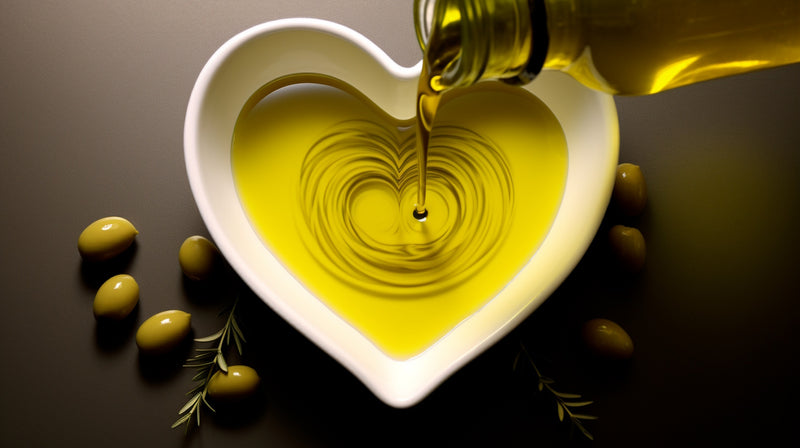Introduction
Olive oil, often referred to as “liquid gold,” has been a treasured culinary and medicinal staple for centuries. With its rich history and myriad health benefits, it’s no wonder that olive oil is considered the golden elixir for heart health. In this article, we explore the remarkable properties of olive oil and how it contributes to a healthy heart.
Olive oil, often referred to as “liquid gold,” has been a treasured culinary and medicinal staple for centuries. This golden elixir, with its rich history and myriad health benefits, has not only graced the tables of countless generations but has also found its place in ancient remedies and healing practices. In fact, its remarkable properties extend well beyond its delicious flavor and have made it a symbol of vitality and longevity.
At the heart of the appreciation for olive oil is its profound impact on heart health. It’s no wonder that olive oil is considered the golden elixir for cardiovascular well-being, as it offers a multitude of benefits that support a healthy heart.
Heart-Healthy Fats: Olive oil is predominantly composed of monounsaturated fats, particularly oleic acid. These fats have been shown to have a positive effect on heart health by reducing levels of LDL (bad) cholesterol while leaving HDL (good) cholesterol levels unaffected. This favorable lipid profile is a key factor in reducing the risk of heart disease.
Antioxidant Power: Olive oil is rich in antioxidants, such as vitamin E and various polyphenols. These compounds help combat oxidative stress and inflammation, which are linked to the development of heart disease. By reducing inflammation and preventing the oxidation of cholesterol, olive oil contributes to a healthier cardiovascular system.
Blood Pressure Regulation: Regular consumption of olive oil has been associated with lower blood pressure, a critical factor in heart health. The polyphenols in olive oil can relax blood vessels, promoting better blood flow and reducing the strain on the heart.
Improved Arterial Function: Olive oil supports the healthy functioning of arteries. It enhances the flexibility of blood vessel walls, reducing the risk of arterial stiffness and atherosclerosis (the buildup of plaque in arteries), which are major contributors to heart disease.
Anti-Inflammatory Effects: Chronic inflammation is a known risk factor for cardiovascular disease. The anti-inflammatory properties of olive oil help mitigate this risk by suppressing inflammatory processes within the body.
Blood Sugar Control: Olive oil may assist in regulating blood sugar levels. Stable blood sugar is crucial for heart health, as high levels can lead to insulin resistance and an increased risk of heart disease.
Weight Management: Including olive oil in a balanced diet may help with weight management, another important aspect of heart health. Its monounsaturated fats help increase feelings of fullness, reducing overall calorie intake.
In this article, we delve into the science behind these remarkable properties of olive oil and how they collectively contribute to a healthy heart. By understanding the multifaceted benefits of this golden elixir, you can make informed dietary choices and incorporate olive oil into your daily life to nourish your heart and promote longevity. So, let’s embark on a journey to uncover the secrets of olive oil, the liquid gold that has been cherished for centuries for its ability to infuse life with flavor, health, and the promise of a robust heart.
Explore this link for a more extensive examination of the topic: Embracing the Liquid Gold: The Wonders of Olive Oil as a Food …
Olive oil has deep historical roots, dating back to ancient civilizations in the Mediterranean region. It was not only a culinary staple but also a symbol of prosperity, peace, and well-being. Its use in traditional cuisines has transcended time, making it a fundamental ingredient in dishes ranging from salads to sautés.
The historical significance of olive oil reaches far beyond its culinary prowess; it is a symbol of culture, tradition, and a way of life in the Mediterranean region. The olive tree, often referred to as the “tree of life” or the “tree of wisdom,” has held a revered place in the hearts and minds of those who have cultivated it for thousands of years.
A Symbol of Prosperity: In ancient Mediterranean civilizations, the abundance of olive trees was seen as a sign of prosperity and fertility. The olive branch, a universal symbol of peace, was used in ceremonies, offerings, and as a gesture of goodwill between nations. Olive oil, extracted from the fruit of this revered tree, embodied the prosperity of the land and the harmony it could bring.
Cultural Significance: The use of olive oil went beyond sustenance; it was deeply embedded in cultural practices and rituals. Olive oil was used to anoint kings and athletes, symbolizing honor and victory. It played a central role in religious ceremonies and was considered a sacred substance, often used for anointing and purification.
Sustenance for Body and Soul: The Mediterranean diet, rich in olive oil, was not just about nourishing the body but also the soul. Sharing meals with family and friends, often prepared with olive oil, was a way of fostering bonds and celebrating life’s moments. The taste of olive oil became intertwined with memories of gatherings, laughter, and the joy of living.
Healing Traditions: Beyond its culinary and symbolic roles, olive oil was recognized for its medicinal properties. Ancient physicians and healers used it to treat various ailments, from skin conditions to digestive complaints. Its anti-inflammatory and antioxidant properties were valued in promoting overall well-being.
A Continuation of Tradition: Today, the use of olive oil in Mediterranean cuisines continues to reflect this rich history and tradition. It remains a fundamental ingredient in iconic dishes like Greek moussaka, Italian pasta, and Spanish paella. Each drizzle of olive oil is a connection to the past and a nod to the enduring wisdom of those who cultivated and cherished the olive tree.
In summary, olive oil’s historical roots extend far beyond its culinary applications. It embodies the values of prosperity, peace, and well-being that have been cherished for millennia. As we savor the taste of olive oil in our modern dishes, we partake in a tradition that transcends time—a tradition that celebrates the bounties of the land, the bonds of community, and the enduring legacy of the olive tree.
You can also read more about this here: Ingredient Spotlight: EXTRA VIRGIN OLIVE OIL | by Sofia Alherani …

Olive oil’s remarkable health benefits are primarily attributed to its unique composition. Here’s what makes it a nutritional powerhouse:
Olive oil stands as a nutritional powerhouse in the world of culinary oils, and its remarkable health benefits are primarily attributed to its unique composition. Let’s delve into the key components and properties that make olive oil a standout in the realm of healthy fats:
Monounsaturated Fats: Olive oil is predominantly composed of monounsaturated fats, specifically oleic acid. These heart-healthy fats have been linked to numerous health benefits, including a reduced risk of heart disease. Oleic acid is known for its ability to lower LDL (bad) cholesterol levels while maintaining or even increasing HDL (good) cholesterol levels. This favorable lipid profile contributes to improved cardiovascular health.
Antioxidant Richness: Olive oil is replete with antioxidants, particularly vitamin E and various polyphenols. These antioxidants combat oxidative stress, reducing the damage caused by free radicals in the body. This protective effect is thought to play a significant role in the prevention of chronic diseases and the aging process.
Anti-Inflammatory Properties: Chronic inflammation is a precursor to many health issues, including heart disease, diabetes, and certain types of cancer. Olive oil’s polyphenols have potent anti-inflammatory properties that may help mitigate inflammation, contributing to overall health and well-being.
Cancer Prevention: Some studies suggest that olive oil’s compounds, such as oleocanthal and oleuropein, may possess anti-cancer properties. They may help inhibit the growth of cancer cells and protect against the development of certain types of cancer, particularly breast and colorectal cancer.
Heart Health: In addition to its effects on cholesterol levels, olive oil has other heart-protective benefits. It can help lower blood pressure and improve blood vessel function, reducing the risk of hypertension and cardiovascular disease.
Brain Health: Emerging research indicates that the Mediterranean diet, rich in olive oil, may be associated with a reduced risk of cognitive decline and neurodegenerative diseases like Alzheimer’s. The monounsaturated fats and antioxidants in olive oil may play a role in supporting brain health and cognitive function.
Weight Management: Contrary to common misconceptions, incorporating moderate amounts of olive oil into your diet may actually assist in weight management. Its healthy fats can promote feelings of satiety, reducing overall calorie intake.
Digestive Health: Olive oil has been shown to have a mild laxative effect, aiding in digestion and potentially relieving constipation.
Incorporating olive oil into your daily cooking is not only a flavorful choice but also a wise one for your overall health. Opt for extra-virgin olive oil, which is less processed and retains more of its beneficial compounds. It can be used in salad dressings, sautéing, roasting, and as a finishing touch to dishes. As with any dietary change, it’s advisable to consult with a healthcare professional or nutritionist to ensure it aligns with your specific health goals and needs.
Looking for more insights? You’ll find them right here in our extended coverage: Liquid Gold Olive Oil Available Now from Rockstar Kelis – Black Girls …
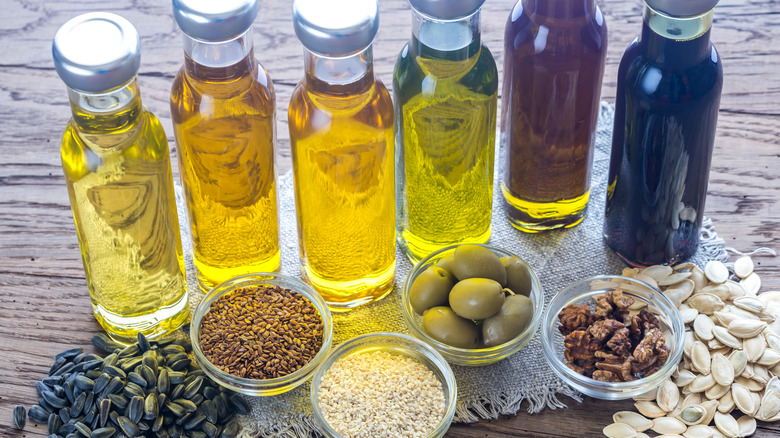
Olive oil’s heart-healthy reputation is closely linked to the Mediterranean diet, a dietary pattern rich in fruits, vegetables, whole grains, lean proteins, and, of course, olive oil. Numerous studies have demonstrated that adherence to the Mediterranean diet can significantly reduce the risk of heart disease, stroke, and other chronic conditions.
nullAdditionally, you can find further information on this topic by visiting this page: The Golden Elixir: Unveiling the Health Benefits of Olive Oil – DHW …

Embracing olive oil for heart health is simple and delicious. Here are some tips for incorporating it into your daily diet:
Embracing olive oil as a heart-healthy dietary staple not only offers a straightforward approach to better cardiovascular well-being but also brings a delightful touch of Mediterranean flavor to your meals. Here are some practical tips to seamlessly incorporate this liquid gold into your daily diet:
Dressing Your Greens: One of the easiest ways to enjoy olive oil is by drizzling it over your salads. Create your own vinaigrette by mixing extra virgin olive oil with balsamic vinegar, a touch of Dijon mustard, and your favorite herbs and spices. This adds a burst of freshness to your greens and ensures your heart gets its daily dose of healthy fats.
Dipping Delight: Elevate your bread experience by using olive oil as a dipping sauce. Pour a small amount of extra virgin olive oil onto a plate, add a pinch of sea salt, a sprinkle of black pepper, and perhaps a dash of balsamic vinegar. Dip your crusty bread into this savory concoction for a mouthwatering treat.
Sauteing and Stir-Frying: Instead of butter or less healthy cooking oils, choose olive oil for sautéing and stir-frying. Its mild flavor and high smoke point make it an excellent choice for cooking a variety of dishes, from vegetables to lean proteins.
Marinades and Rubs: Create flavorful marinades and rubs for your meats and vegetables with olive oil as the base. Mix it with herbs, garlic, lemon juice, and your choice of seasonings. Let your ingredients soak up the rich flavors before grilling or roasting.
Finishing Touch: After you’ve prepared your favorite dishes, consider adding a drizzle of extra virgin olive oil as a finishing touch. Whether it’s a bowl of pasta, grilled fish, or roasted vegetables, this enhances the overall taste and provides an extra layer of heart-healthy goodness.
Baking Bliss: Yes, olive oil can be used in baking too. Replace butter or other fats in recipes with olive oil for a moist and flavorful outcome. It works exceptionally well in cakes, muffins, and even savory bread.
Smoothies and Dressings: For a unique twist, add a spoonful of extra virgin olive oil to your fruit smoothies for a creamy texture and a dose of healthy fats. You can also use it in homemade mayonnaise or as a base for other creamy dressings and sauces.
Snacking Sensibly: Create a simple and nutritious snack by drizzling olive oil over roasted nuts and seeds. A sprinkle of your favorite spices or herbs can add an extra layer of flavor.
Incorporating olive oil into your daily diet for heart health isn’t just about making a health-conscious choice; it’s about indulging in the rich, savory flavors of the Mediterranean. By following these tips and getting creative in the kitchen, you’ll discover that this heart-healthy oil is not only simple to embrace but also absolutely delicious.
To delve further into this matter, we encourage you to check out the additional resources provided here: The Golden Elixir: Unveiling the Health Benefits of Olive Oil – DHW …
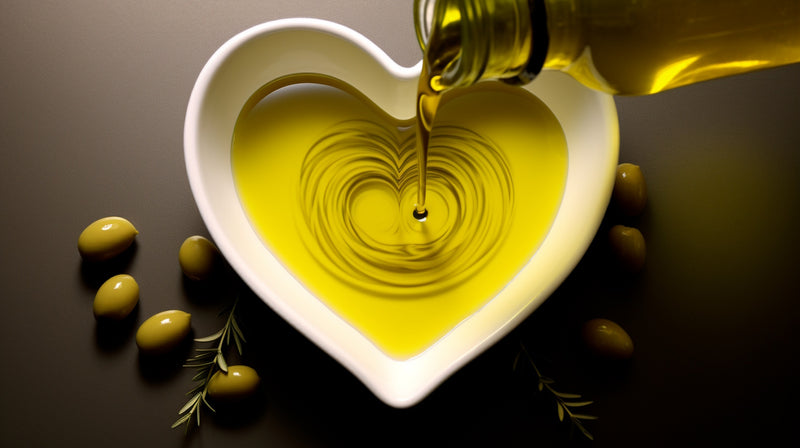
Create vinaigrettes with olive oil, vinegar, and herbs to drizzle over salads.
Creating homemade vinaigrettes with olive oil, vinegar, and herbs is not just a culinary delight; it’s a versatile and healthy way to elevate your salads and enhance their flavors. Here are some compelling reasons to embrace the art of crafting your own vinaigrettes:
Customized Flavors: Making your own vinaigrettes allows you to tailor the taste to your liking. Experiment with different types of vinegar, such as balsamic, red wine, or apple cider vinegar, to achieve the perfect balance of acidity and sweetness. Mix and match herbs like basil, thyme, or cilantro to create unique and enticing flavor profiles.
Healthier Choice: Homemade vinaigrettes offer a healthier alternative to store-bought salad dressings, which can often be laden with preservatives, unhealthy fats, and excessive sugars. By controlling the ingredients, you can ensure your dressing is free from unwanted additives and excessive calories.
Nutrient-Rich Ingredients: Olive oil, a staple in vinaigrettes, is renowned for its heart-healthy monounsaturated fats and antioxidants. By using high-quality olive oil, you not only enhance the flavor but also introduce a dose of beneficial nutrients to your salad.
Versatility: Vinaigrettes are incredibly versatile and can be used for more than just salads. Drizzle them over roasted vegetables, use them as marinades for meats and seafood, or even as dipping sauces for crusty bread. Their flexibility in the kitchen makes them a valuable addition to any cook’s repertoire.
Freshness: Homemade vinaigrettes capture the essence of freshness. The vibrant colors and flavors of your chosen herbs and ingredients impart a sense of vitality to your dishes. Each drizzle enhances the visual appeal of your salads, making them as visually enticing as they are delicious.
Cost-Effective: Making your own vinaigrettes can also save you money in the long run. Purchasing salad dressings can add up over time, while crafting your own allows you to buy staple ingredients in larger quantities, ultimately reducing the cost per serving.
Reduced Waste: Homemade vinaigrettes help reduce food waste. You can make just the amount you need, reducing the likelihood of half-empty bottles of store-bought dressings languishing in your fridge and eventually going to waste.
Sustainability: By making your own vinaigrettes, you have more control over the ingredients you use. This allows you to make sustainable choices, such as opting for locally sourced herbs and olive oil, which can reduce your carbon footprint.
In summary, creating your own vinaigrettes is a rewarding culinary practice that empowers you to infuse your salads and dishes with customized flavors while making a healthier, cost-effective, and sustainable choice. It’s a small but impactful step towards elevating your meals and embracing a more mindful approach to cooking and eating.
Explore this link for a more extensive examination of the topic: Olive Oil Health Benefits and Olive Oil Nutrition Facts
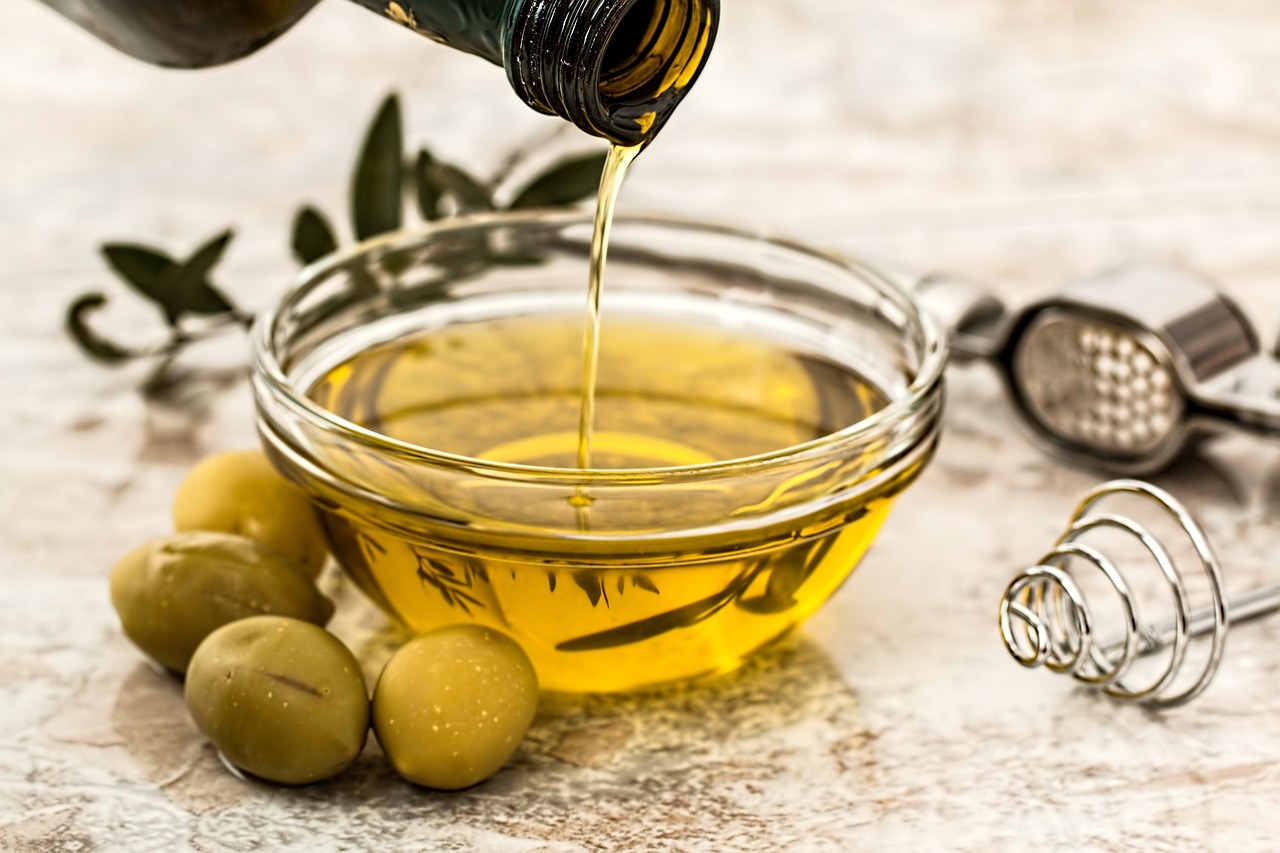
Use olive oil for sautéing vegetables, frying, and even baking. Its high smoke point makes it versatile in the kitchen.
Harnessing the versatility of olive oil in your culinary endeavors can truly elevate your cooking experience. Here are some ways to make the most of this kitchen essential:
Sautéing Vegetables: Olive oil’s delicate, fruity flavor enhances the natural taste of vegetables without overpowering them. When sautéing, use a moderate amount of olive oil to lightly coat your pan and prevent sticking. The result will be tender, flavorful veggies that are perfect for salads, pasta dishes, or simply as a side.
Frying: Olive oil’s high smoke point, which is typically around 375°F (190°C) for extra virgin olive oil, makes it suitable for shallow frying and pan-frying. Whether you’re making crispy golden French fries, fried chicken, or tempura, olive oil’s stability at high temperatures ensures a delectable crunch without an overly greasy finish.
Baking: Believe it or not, olive oil can be an excellent substitute for butter or other fats in baking recipes. It adds moisture to baked goods like cakes, muffins, and brownies, imparting a subtle fruity undertone to your creations. When using olive oil in baking, opt for a mild or light variety to avoid overpowering the flavors of your sweet treats.
Dressings and Marinades: Olive oil is a star ingredient in salad dressings and marinades. Its smooth texture and flavor profile allow it to blend seamlessly with various herbs, spices, and acidic components, creating a harmonious and mouthwatering mixture that can transform your salads and marinated meats.
Grilling: Brushing vegetables, meats, or seafood with olive oil before grilling not only prevents sticking but also imparts a delightful smoky flavor. The high smoke point ensures that your oil won’t burn or produce unpleasant acrid tastes during grilling.
Incorporating olive oil into your cooking repertoire not only enhances the taste of your dishes but also brings a touch of Mediterranean elegance to your culinary creations. Whether you’re sautéing, frying, baking, or dressing, let olive oil be your trusted kitchen companion, adding its rich flavor and numerous health benefits to your meals.
Additionally, you can find further information on this topic by visiting this page: Posts tagged “heart health” – Selo Olive Oil Blog

Enjoy olive oil with a sprinkle of herbs and some crusty whole-grain bread for a satisfying appetizer.
nullIf you’d like to dive deeper into this subject, there’s more to discover on this page: Unlock the Incredible Health Benefits of Extra Virgin Olive Oil …

Infuse meats, poultry, and seafood with the rich flavors of olive oil and herbs before grilling or roasting.
Elevate your culinary creations by infusing meats, poultry, and seafood with the tantalizing flavors of olive oil and herbs before subjecting them to the grill or oven. This simple yet effective technique not only enhances the taste and aroma of your dishes but also adds depth and complexity to your cooking. Here’s how infusing olive oil and herbs can transform your culinary endeavors:
Flavorful Marination: Marinating your proteins in a mixture of olive oil and your favorite herbs is like giving them a flavorful spa treatment. The oil carries the aromatic essence of the herbs deep into the meat, infusing it with layers of taste that intensify during cooking. Whether you opt for classic rosemary and thyme or experiment with exotic blends, this process ensures every bite bursts with mouthwatering flavors.
Tenderizing Effect: The fats in olive oil work wonders in breaking down the tough fibers in meat, making it more tender and succulent. This tenderizing effect results in a juicy, melt-in-your-mouth texture that’s bound to impress your palate.
Healthful Benefits: Olive oil, especially extra virgin olive oil, is renowned for its health benefits. It’s rich in monounsaturated fats, which have been linked to heart health and reduced inflammation. When used as a marinating base, it not only improves taste but also infuses your dishes with these potential health advantages.
Customized Creations: The beauty of this technique lies in its versatility. You can tailor your olive oil and herb blend to suit your preferences and the dish you’re preparing. For a Mediterranean flair, use oregano, basil, and garlic; for a more Asian-inspired profile, go for ginger, soy sauce, and sesame oil.
Aromatherapy for Cooking: The process of infusing olive oil with herbs releases an enticing aroma that fills your kitchen with the promise of a delicious meal. This sensory experience is an integral part of the pleasure of cooking and dining.
Culinary Creativity: Experimenting with different combinations of herbs and olive oil allows you to express your culinary creativity. You can adapt the infusion to match various cuisines, seasons, and occasions, keeping your cooking repertoire fresh and exciting.
Enhanced Nutritional Value: Herbs are not just about flavor; they also bring a wealth of nutrients to your dishes. By incorporating a variety of herbs into your infused olive oil, you can introduce a range of vitamins, minerals, and antioxidants that contribute to the overall nutritional value of your meals.
Incorporating the practice of infusing meats, poultry, and seafood with olive oil and herbs is like creating a symphony of flavors that dance on your taste buds. It transforms the ordinary into the extraordinary and elevates your cooking to a new level of culinary excellence. So, the next time you prepare your favorite proteins, consider this technique as your secret ingredient for a memorable dining experience.
Don’t stop here; you can continue your exploration by following this link for more details: Discover the 4 Essential Oils for Your Everyday Cooking!
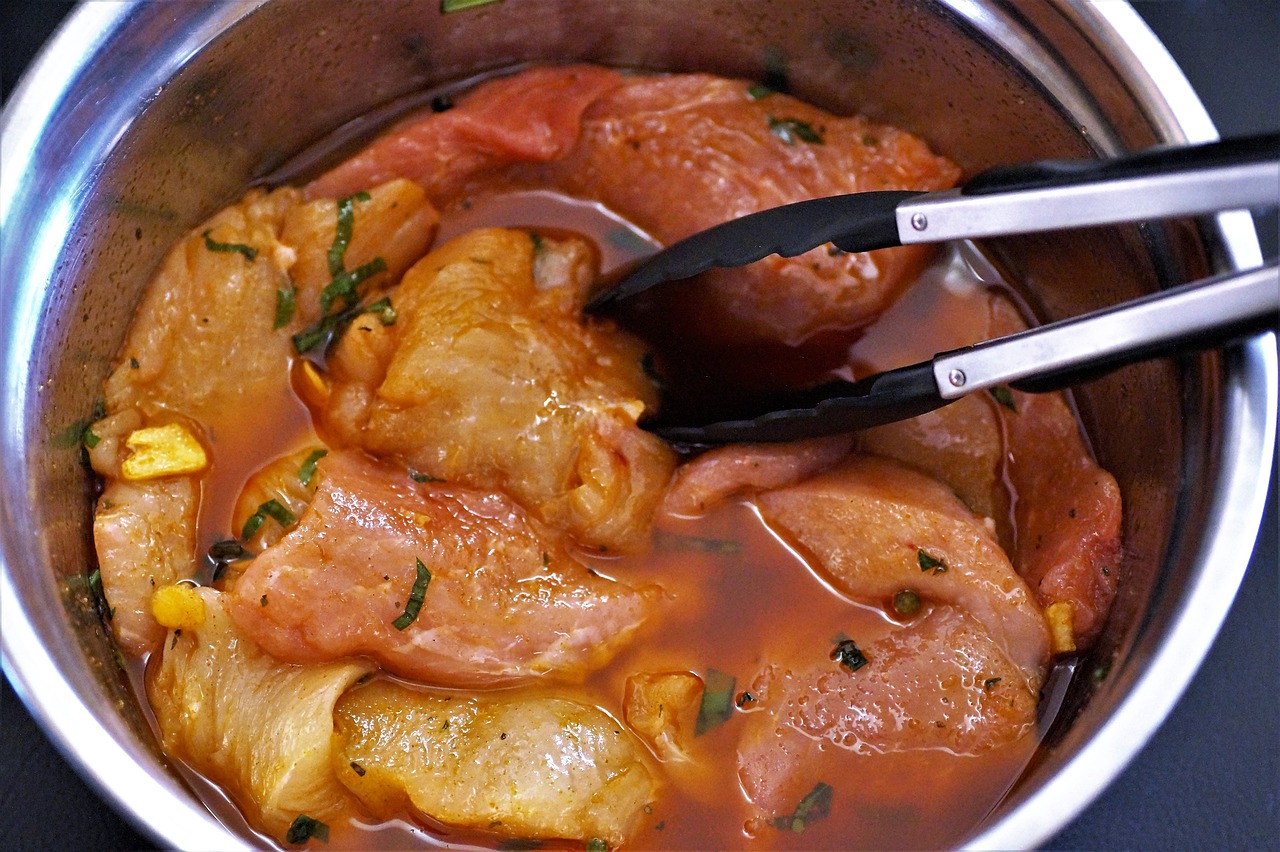
Conclusion
Olive oil’s golden reputation as a heart-healthy elixir is well-deserved. Its monounsaturated fats, antioxidants, and anti-inflammatory properties make it a valuable addition to any diet focused on cardiovascular well-being. By incorporating olive oil into your daily culinary routines, you’re not only savoring its exquisite taste but also nourishing your heart with the liquid gold that has stood the test of time. So pour generously, drizzle with delight, and celebrate the heart-healthy wonders of olive oil.
Olive oil’s illustrious reputation as a heart-healthy elixir is firmly grounded in both tradition and science. This liquid gold, extracted from the fruit of the olive tree, has been celebrated for centuries, and modern research has only solidified its status as a vital component of cardiovascular well-being.
At the core of olive oil’s heart-healthy allure are its monounsaturated fats, specifically oleic acid. These fats are renowned for their ability to reduce bad cholesterol levels (LDL) in the blood, thereby lowering the risk of arterial plaque buildup and ultimately heart disease. In addition to fostering a favorable lipid profile, olive oil also helps maintain the flexibility and health of blood vessels, ensuring efficient blood flow throughout the body.
Yet, olive oil’s benefits extend far beyond its fat composition. It’s a treasure trove of antioxidants, particularly vitamin E and polyphenols, which combat harmful free radicals that can trigger inflammation and oxidative stress—a significant factor in heart disease development. These antioxidants act as protective shields, safeguarding your cardiovascular system and preserving its vitality.
Furthermore, olive oil boasts potent anti-inflammatory properties. Chronic inflammation is a recognized contributor to heart disease, and the compounds in olive oil help to quell this inflammatory response, reducing the risk of atherosclerosis and related cardiovascular complications.
Incorporating olive oil into your daily culinary routines is not just about enjoying its exquisite taste; it’s about nurturing your heart with the timeless wisdom of Mediterranean cuisine. Drizzle it over your salads, use it for sautéing vegetables, or create a delectable dip with a blend of olive oil and herbs. Whether you prefer the robust flavor of extra virgin or the versatility of light olive oil, the key is to make it a staple in your kitchen.
So, when you pour that generous golden stream of olive oil, you’re not just enhancing your meals; you’re celebrating the heart-healthy wonders of a culinary tradition that has spanned millennia. With each drop, you’re not only savoring a timeless elixir but also investing in your long-term cardiovascular health, ensuring that your heart remains strong, vibrant, and well-nourished for years to come. Cheers to the liquid gold that nature has bestowed upon us—olive oil, a true guardian of our hearts.
Additionally, you can find further information on this topic by visiting this page: Unveiling the Mediterranean Diet and Lifestyle: A Path to Wellness …
More links
Don’t stop here; you can continue your exploration by following this link for more details: What’s the Perfect Dose of Olive Oil per Day? | SELO | Selo Olive Oil
